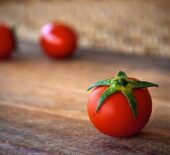Canned fruits and vegetables often get a bad reputation when it comes to perception of nutritional value. This is not always the case. Canned vegetables and fruit can not only be a more economical choice but also a rich source of nutrients for your body.
The Process of Canning
Canning fruits and vegetables have three steps to ensure they are safe for long-term storage without a refrigerator.
- Processing
This step is when the fruit and vegetables are cleaned and if needed pitted, peeled, cut and chopped prior to canning. Some fruit and vegetables are blanched and hydrated for example dried beans. The cans are filled with either juice or water before the produce are placed into them.
- Heating
After the produce is filled into the can, the can is sealed and then heated at a very specific temperature and time. This prevents the produce going off and kills bacteria potentially present.
- Cooling
After the heating process the can is cooled quickly
Can Canned Foods Be Healthy?
The short answer is yes. The produce is picked and processed when the fruit and vegetable is at optimal freshness. This gives your body the nutritional benefits of a ripe fruit or vegetable. Canned vegetables and fruit can be equally as nutritious as fresh or frozen varieties as canning preserves and, in some cases, enhances certain nutrients.
The macronutrients, fat, protein and carbohydrates remain stable throughout the canning process. Some of the water-soluble vitamins including vitamin C and B vitamins may reduce with processing, however, other nutrients increase with the canning process. An example is lycopene which is more bioavailable for your body after the canning process compared to lycopene from a fresh fruit or vegetable. This is a good reason to enjoy canned tomatoes.
Canned beans are a time effective way to enjoy the health benefits of these nutrients’ rich vegetables. Legumes like lentils need boiling for at least thirty minutes in a quick method or soaking for hours before eating, which many people don’t have the time to do. Canned vegetables require no soaking, simply open the can and enjoy!
Adding beans and legumes to sauces can be an easy way to swap out meat for a plant-based alternative. E.g swapping beef mince for kidney beans on a taco meal.
A classic, family friendly choice meal is no added sugar and salt baked beans on wholegrain bread with some low-fat cheddar cheese on top. This is an easy, complete meal with many nutrition benefits.
The cost of living is making healthier choices harder for many. Canned fruit and vegetables can be a great way to meet your daily fruit and vegetable needs without blowing the budget. Also, no refrigeration is needed and unlike many fruits and vegetables which go to the bottom draw of the fridge to die, canned vegetables won’t spoil.
Smart Choices to Make Canned Varieties Healthier
When selecting canned fruit and vegetables opt for those canned in 100% fruit juice, or in its own juice or canned in water. There are many varieties which are canned in syrup or salt. If a variety which does not have added sugar or salt is not possible, washing the produce before eating can help reduce added sugar and salt. If the can is dented or damaged, do not purchase. Any damage to a can reduces the ability of the can to prevent spoilage and bacteria grow.
Take home message: There is no reason to hate on canned fruit and vegetables. Canned fruit and vegetables can be a healthy way to meet your fruits and vegetables needs each day to promote your optimal health and wellbeing.








